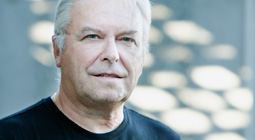The Urban Age in Question
Neil Brenner, Harvard University
Neil Brenner is Professor of Urban Theory at the Harvard Graduate School of Design (GSD) and the coordinator of the newly founded Urban Theory Lab GSD. Brenner’s writing and teaching focus on the theoretical, conceptual and methodological dimensions of urban questions. His work builds upon, and seeks to extend, the fields of critical urban and regional studies, comparative geopolitical economy and radical sociospatial theory. Major research foci include processes of urban and regional restructuring and uneven spatial development; the generalization of capitalist urbanization; and processes of state spatial restructuring, with particular reference to the remaking of urban, metropolitan and regional governance configurations under contemporary neoliberalizing capitalism.
Brenner is the author of New State Spaces: Urban Governance and the Rescaling of Statehood (Oxford University Press, 2004). Other book-length publications include Cities for People, not for Profits: Critical Urban Theory and the Right to the City (co-edited with Peter Marcuse and Margit Mayer; Routledge 2011); Henri Lefebvre, State, Space, World (co-edited with Stuart Elden, co-translated with Gerald Moore and Stuart Elden, University of Minnesota Press, 2009); The Global Cities Reader (co-edited with Roger Keil; Routledge, 2006); Spaces of Neoliberalism: Urban Restructuring in North America and Western Europe(co-edited with Nik Theodore; Blackwell, 2003); and State/Space: A Reader (co-edited with Bob Jessop, Martin Jones and Gordon MacLeod; Blackwell, 2002). Several scholarly articles and essays have been translated into other languages, including Chinese, Finnish, German, Italian, Japanese, Portuguese, Spanish and Turkish.
Major current research and writing projects focus on:
Planetary urbanization
New conceptual and methodological challenges for 21st century critical urban theory
The future of ‘comparative’ urban studies
Neoliberalization: geographies, modalities and pathways
The evolution of urban, metropolitan and regional governance in geohistorical and comparative perspective
The rescaling of state space in geohistorical and comparative perspective
Henri Lefebvre on space, politics and urbanization
Brenner serves on the editorial board of the Studies in Urban and Social Change (SUSC) book series, affiliated with the International Journal of Urban and Regional Research and published by Blackwell-Wiley (Chief Editor, 2005-2009). He also serves on the editorial boards of several scholarly journals, includingInternational Journal of Urban and Regional Research, CITY, Urban Studies, European Journal of Urban and Regional Studies, Geopolitics and Cambridge Journal of Regions, Economies and Societies. He has served as a visiting professor or lecturer in several European universities, including the University of Amsterdam (Wibaut Chair of Urban Studies), the University of Bristol (Benjamin Meaker Visiting Professorship), the National University of Ireland/Maynooth and the University of Urbino (EUREX summer school in urban studies)

 Dr. Derek Gregory is a member of the Department of Geography and one of two Peter Wall Distinguished Professors at the Peter Wall Institute for Advanced Studies at the University of British Columbia in Vancouver, Canada. Dr. Gregory trained as an historical geographer at the University of Cambridge. His research focused on the historical geography of industrialization and on the relations between social theory and human geography and explored a range of critical theories that showed how place, space, and landscape have been involved in the operation and outcome of social processes. His 1982 book, Regional Transformation and Industrial Revolution, was staged on the classic ground of E.P. Thompson’s Making of the English Working Class. Following a move to Vancouver in 1989, Gregory’s work was reinforced by postcolonial critique, outlined in his 1989 book Geographical Imaginations. This new phase of work owed much to Edward Said’s critique of Orientalism, but it was much more concerned with the corporeality and physicality of travel – with embodied subjects moving through material landscapes – and with the constantly changing (often mislaid) cultural baggage of the travelers. And it paid attention what travelers mapped, sketched, and photographed – and to the consequences these representations had for their encounters.
Dr. Derek Gregory is a member of the Department of Geography and one of two Peter Wall Distinguished Professors at the Peter Wall Institute for Advanced Studies at the University of British Columbia in Vancouver, Canada. Dr. Gregory trained as an historical geographer at the University of Cambridge. His research focused on the historical geography of industrialization and on the relations between social theory and human geography and explored a range of critical theories that showed how place, space, and landscape have been involved in the operation and outcome of social processes. His 1982 book, Regional Transformation and Industrial Revolution, was staged on the classic ground of E.P. Thompson’s Making of the English Working Class. Following a move to Vancouver in 1989, Gregory’s work was reinforced by postcolonial critique, outlined in his 1989 book Geographical Imaginations. This new phase of work owed much to Edward Said’s critique of Orientalism, but it was much more concerned with the corporeality and physicality of travel – with embodied subjects moving through material landscapes – and with the constantly changing (often mislaid) cultural baggage of the travelers. And it paid attention what travelers mapped, sketched, and photographed – and to the consequences these representations had for their encounters.